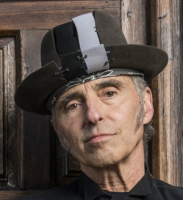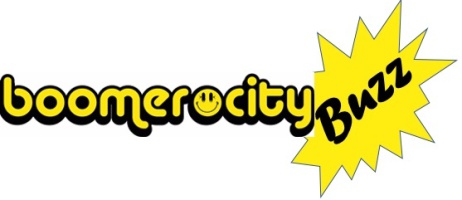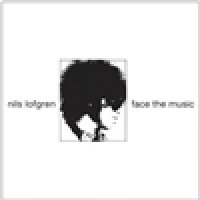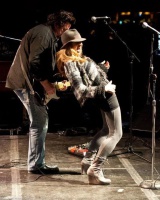Posted August 10, 2014
 I’ve said it before and I’ll say it again: I’m always honored and flattered when artists take the time to allow to be interviewed by me. That feeling ratchets up exponentially when they sit for a second or even third interview with me.
I’ve said it before and I’ll say it again: I’m always honored and flattered when artists take the time to allow to be interviewed by me. That feeling ratchets up exponentially when they sit for a second or even third interview with me.
Such was the case when I recently had the privilege of chatting with Nils Lofgren for the second time in three years. He was kind enough to take time out of his incredibly busy schedule to talk with me about his latest project: The nine CD/1 DVD box set, “Face the Music”, that thoroughly covers his forty-five plus years in the music business.
I called Nils at his Scottsdale, Arizona, home while he was preparing to leave for Los Angeles with his lovely wife, Amy. They were going there for a few days of press appearances in support of the release as well as an acoustic performance at the Grammy Museum. As we made small talk before the formal interview started, I asked him a question that a Boomerocity reader wanted me to ask. They wanted to know why he picked Scottsdale to live.
“In the very early eighties, I was playing The Stone Pony – which I still play – the famous nightclub at Asbury Park. I met this great girl by the name of Amy Aiello. I loved her and we hung out for the night. I went to Boston at six a.m. and I couldn’t convince her to come on the tour bus to Boston because she had a job and her mother would kill her. I said that I would call her and square it with her but that didn’t work out. So I thought I would see her soon because I play in Jersey a lot.
“I didn’t see her for fifteen years. Nineteen years ago this February coming up; I was at a great rock club here in town – in Scottsdale – called The Rockin’ Horse. At the end of the night she walked up and said, ‘Hi, remember me?’ We were both at the end of divorces. She had a young five year old. We started dating and we’ve been together ever since.”
Then with a little tongue-in-cheek humor, he added, “I wish she’d come to Boston but she was worth the wait”.
I was curious what prompted the idea of putting out such and extensive box set.
“It was really Concord Records’ idea. Eighteen months ago, their president, Gene Rumsey, and their A&R guy, Tom Cartwright - who’s an old friend that I’ve worked with at other companies - approached me. We had a lunch in New York about a possible comprehensive box set on Fantasy Concord.
“This was a beautiful idea to me because through the decades I called the companies and tried to buy my extinct music back for five dollars a CD just so that they could get a little money back and put them out. They always said no. So, to have someone who wanted to champion the idea was great.
“Most box sets, everyone has the music except for the bonus tracks and so much of my old music is out of print. A lot of people complained about not finding the old music. So, this is a great opportunity. As we got deeper into the discussions, we agreed to not do it if it couldn’t be a thorough box set which meant going back and getting the rights to hundreds of songs – some are out of print. Four or five had very messy, bureaucratic ways but, to their credit, they did it.
“We spent eighteen months crafting a great book and story. Dave Marsh helped me edit my story. He insisted that I write it. He wrote a great forward. Amy was our art director with our assistant, Omar, who’s got great artistic tastes. Both of them worked with the art directors at Concord and Fantasy and we finally got it done. It’s impressive. Ten discs and forty-five years. Dave had me write the story about the music and speak to every track. It’s a hundred and thirty-six page book with a lot of great posters and old paraphernalia that a good collector friend of mine, Steve Smolen, was nice enough to lend us. So, it’s very thorough.
“We found a lot of great bonus tracks – two discs of them; old Grin stuff that no one ever heard and we remixed them. There are a lot of jams that now see the light of day so I’m very grateful about it.”
I read in other interviews that, in the past, Lofgren couldn’t get his old record labels to cooperate with him in re-releasing his old albums. I was curious how he and Concord Fantasy were able to break up the log jam and make this project a reality.
“The music business is very strange. I mean, I would call these companies who, on their books, I owed them a lot of money, and I would offer them money. I would say, ‘Look, it’s a buck and a quarter to make a CD and I’ll pay you five dollars for my own music and you’ll make a little money.’ They would say, ‘That’s too small potatoes for us. We don’t want to bother’. That’s the bureaucracy and madness of life. ‘We don’t want to bother having you pay back money you owe us.’
“It really upset me but it’s not unique. Anyone who hasn’t had big hit records and has some power to keep their music in  print - which is most recording artists, professionally – if enough time goes by, the stock goes out of print and they don’t make any more, which is not a unique story. That was a frustration for decades that I accepted and certainly wasn’t happy about. So, to have a company go back and do all that work – it’s just business deals. They would be happy to tell me that they weren’t good deals for getting the music. They got charged a lot for it but, to their credit, they went and got every song I wanted and we were able to put a fabulous running order together of about twelve or thirteen hours of music.
print - which is most recording artists, professionally – if enough time goes by, the stock goes out of print and they don’t make any more, which is not a unique story. That was a frustration for decades that I accepted and certainly wasn’t happy about. So, to have a company go back and do all that work – it’s just business deals. They would be happy to tell me that they weren’t good deals for getting the music. They got charged a lot for it but, to their credit, they went and got every song I wanted and we were able to put a fabulous running order together of about twelve or thirteen hours of music.
“So, with that in mind, there’s about a hundred and sixty-nine different tracks and a twenty track DVD – some rarities and performances and interviews that are cool. I couldn’t be happier about it.”
“First, of course, I got everything written down with the keys they’re in. Then I just started listening which was not easy because I didn’t have a lot of the music. You give away your CDs and you never think that it’s ever going to be out of print. As a kid you always think, ‘Well, gosh, I ran out. I can’t get any from the company. I’ll walk into the music store and buy some more.’ I learned long ago that that wasn’t possible.
“So, to establish a running order with feels and keys that flowed right. Billy Wolf put a rough master together of that and I listened to it and made some changes. It was months and months and months of work looking at the past. I had forgotten how much I had done but I sure wasn’t thinking about it. Psychologically knowing that a lot of it’s out of print is kind of a little stain on your soul. Inevitably, you blame yourself. I’m not a finger pointer. I’m, like, ‘Well, I must not have had a hit record. I thought they were good enough.’ Standard stuff that musicians do but this time, knowing that the company wanted to go get every track that I wanted, it was exciting to put this together and they went and found them all and made the deals to get them.
In answer to my question as to whether or not they ran into any issues with the condition of the master tapes being less than desirable, Nils said, “Yeah, we did find some funky tapes that would have to be baked. Billy Wolf had to use every trick in the book to resurrect something off of a cassette or an old two track that had been damaged a little bit. But he did it! There were some bonus tracks or basement demos I only had in an old DAT type in my home studio which is some harsh sounding digital stuff. But he’s got all these great, high end tricks to make everything sound all warm and analog – and we did find some old analog tapes – not a lot but we did find some and got some from the old companies. In some cases, the old companies had lost them. That’s frustrating but, hey! It’s still the music.
“The heart, the time and the energy and intent that went into everything – especially the early Grin stuff, there’s an innocence and commitment there that’s beautiful to hear. Back in the days where there were no click tracks. There was no real choreography in rock and roll and there was no video and the only game in town was to play in front of people. That’s all Grin did: play anywhere and everywhere for little or no money or decent money. It didn’t matter. We just played. When David Briggs – Neil Young’s producer – thanks to Neil for turning us onto David – both of them took us under their wing – especially David; we had an expert in the studio that took a rookie band and helped us make good records, which he did.”
Were there any surprises while putting this aggressive project together?
“Yeah, of course. Even just trying to remember old basement tapes. This was forty-three or forty-four years ago. For weeks, I was looking through my basement in Maryland and out here in Arizona, for an old cassette of a rough mix of ‘Keith Don’t Go’ with Grin and Neil Young playing piano and singing and I just couldn’t find it. Billy was trying to bake the cassette and make the most of it but I could never find it. I went through thousands of old cassettes. I’m not a great librarian. Everything isn’t perfectly notated in a computer and that’s my fault.
“I met Bob Dawson who engineered a lot of the Grin stuff with David Briggs in the early Grin days and he still has Bias Studios where we recorded in Virginia. He came down and we rummaged through some master reels that I had in a closet and, sure enough, we found a sixteen track master of ‘Keith Don’t Go’. We remixed it to emulate what we were doing at that point. Fortunately, it was the same engineer who worked with us there at the same studio and Neil gave us permission to use it. He played brilliant piano and sang. You don’t hear a lot of Neil Young session work on piano and that classic voice of his. So that’s the version we used of ‘Keith Don’t Go’ because I did write the song on the ‘Tonight’s the Night’ tour with him in Europe, specifically. All of the English fans were talking about Keith and that he wasn’t doing well. I was naïve and young and just thought he’s just made ‘Exile on Main Street’. Sounds like he’s doing okay.
“But, nevertheless, I had this dark piece of music and I wrote this giant thank you note on behalf of all of our fans to Keith to stick around. We found it and we found other Grin tapes that I’d forgotten about. A song called, ‘Sweet Four Wings’ and a song called, ‘Try’ – a song we used to play in bars as a power trio for years before we recorded it. There was a lot of beautiful stuff. There was a bonus track, ‘Sing For Happiness”, that did appear on a Legacy Grin thing from Sony Legacy but it was in pretty bad shape and Billy dialed it up and made it sound right. The great Ben Keith – the pedal steel player – he was on it with that beautiful pedal steel and his great harmony singing.
“So, it’s just a lot of cool bonus stuff that, once you started digging, you find and we resurrected it all.”
I asked Lofgren if he had any instances where, in comparing then to now, he had thoughts of “If only ‘this’ or, “I wish I had done ‘that’ back then”?
“Not a lot. I mean, I’ve long ago accepted that I’m a better singer now in the last ten or fifteen years than I was when I started. Most people are. There’s very few people who come out of the gate successfully. There’s successes like Paul Rodgers and Rod Stewart. They mature but they came out of the gate as amazing singers. I was okay and I got a lot better. But there’s a charm to that. The charm and the intent from young kids trying their heart out with a piece of original music together. That’s why I’ve never been a fan of all the record companies and some people who re-record some of their own music and put it out again. But I never seriously considered re-recording any of the old stuff.
“Grin was a true democratic band. We lived together with our crew. We played everywhere. We dug ourselves out of snow drifts at this old country farm we rented. It was really a powerful experience for a young band. So there’s a charm and an innocence and intensity there because that was our whole lives 24/7. I just don’t have a thought in my head to re-record them, really. I do that live. There’s some good live recordings and maybe 20 – 25 years later I might think I’m playing better. As a guitar player I think I’ve matured but it takes something away from the intent and the innocence to some really hard work when you’re younger with a group of friends that you love.”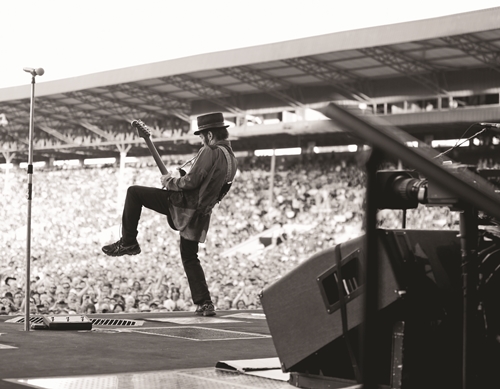 Since Nils worked with iconic artists who have passed away – people like Lou Reed and Levon Helm, to name just a couple – I assumed that there was a rekindling of emotions and memories of them. When I asked him about it, his answer portrayed both the warmth of amazing memories and the bitter sweetness one feels when remembering lost friends.
Since Nils worked with iconic artists who have passed away – people like Lou Reed and Levon Helm, to name just a couple – I assumed that there was a rekindling of emotions and memories of them. When I asked him about it, his answer portrayed both the warmth of amazing memories and the bitter sweetness one feels when remembering lost friends.
“Of course. All of those situations – especially people that you lost like Levon and Lou Reed who I got to write thirteen songs with and it’s a great story in the book; and Kathi McDonald, I saw her singing with Claudia Lennear and Leon Russell in the beginning. Me and David Briggs saw them at the Santa Monica Civic Center and were blown away. When Grin was recording at Wally Heider’s in San Francisco’s Tenderloin District – we worked so much up there – her name was on the billboard as a singer for hire. We couldn’t believe it. Sure enough, Kathi came down. She sang her brains out for us on a number of tracks. David even went on to make a solo album with her. Grin played with her along with a lot of great players like Nicky Hopkins, So, to hear Kathi’s voice and know that she’s gone; Levon, Lou Reed, Buddy Miles, Claudia Lennear – who’s still around – so, yeah, a huge stroll down memory lane on many levels going through these old tracks in particular.”
On the lighter side of memory lane, Lofgren reflected on the comments he received from the likes of Elvis Costello, Jackson Browne and Roger Daltrey, to name just a few.
“There are twenty-two or so dear friends like that who were kind enough even before the heard it all – a lot of them were familiar with a lot of my old music. Reading the testimonials in the book, I was shocked. In the case of someone like Elvis Costello, who I used to go see with the Attractions at the Santa Monica Civic Center in the early seventies. I’d go back and say ‘hi. I’m a big fan’ and for him to remember that and speak so emotionally about some of my early songs as Jackson Browne would. I was really surprised that people knew that many of my songs. Or, Roger Daltrey talking about some of my later releases and specific songs and what they meant to him. It kind of blew my mind.
“You kind of shield yourself with armor once all this stuff has disappeared in the companies say that they’re not going to get it out again, you kinda just move forward and you really can’t look back too much. It’s too painful because part of you feels like you failed in some way. So, to get this all out and have all these friends chime in and give me a vote of confidence with some detail surprised me with their reminisces of some of the older songs or tracks that I had no idea that they were aware of but meant something to them was a powerful part of this journey.”
“Then, October 3rd, I’m here in Scottsdale at the Talking Stick Casino and then October 4th at the Fox Theater in Tucson. So, these are the first four shows. I’m gonna get back to work and see how it feels. It’s been three years since I did my shows so it will be exciting to get back to that. A couple of years ago on the E Street tour, I fell a couple of times and tore my rotator cuff so I’m having those get strong enough to do my own show which is challenging and it will be fun. It will be good for me to get back to singing, playing more, leading a show in front of people. Right now, we’re working on a January run in the UK which looks like it may happen.
I asked Lofgren what he hoped fans would get out of “Facing the Music”.
“Hopefully, in one place, this will give them a great idea outside of who I’ve been outside of playing with other great bands. That’s a good place to start. Hopefully, friends will spread the word. My attitude is if you’ve gotta go online and spend twenty minutes tracking down some obscure track, that’s out of print to me. To me, music should just be available. For the company to help me put this together over the last eighteen months and have all these hundreds of songs available and running smoothly from one to the other – including the eras – it’s something that I really thought would never happen. So, I’m very grateful and thankful to the company and I’m gonna promote the heck out of it the best I can. It’s very grass roots word of mouth and I appreciate your help, too, in spreading the word. Hopefully, there’s a lot of old fans of mine that, by hearing the old stuff, will realize it’s here, now, will take a listen to it and spread the word for me, too.”
“Not big ones. I have a guitar school on my website for beginners and intermediate players. I’ll take up some more guitar 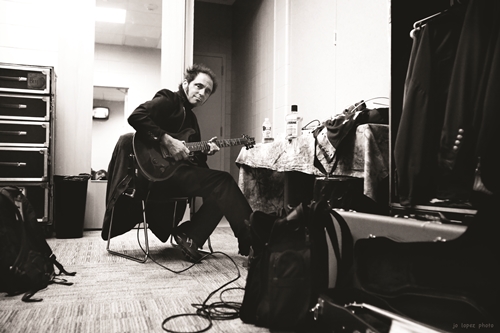 lessons. They’re hour long lessons that you can download from my website, NilsLofgren.com. There’s a lot of free video clips there and music. We’ll keep offering free stuff for you to listen to. As I get out and play here in the states, our great engineer, Frank Marchan, usually records it to his computer. So, maybe if we get some good recordings, we might consider putting out a live thing of some of the upcoming shows just as an interim thing audio wise on the website.
lessons. They’re hour long lessons that you can download from my website, NilsLofgren.com. There’s a lot of free video clips there and music. We’ll keep offering free stuff for you to listen to. As I get out and play here in the states, our great engineer, Frank Marchan, usually records it to his computer. So, maybe if we get some good recordings, we might consider putting out a live thing of some of the upcoming shows just as an interim thing audio wise on the website.
Obviously, Nils Lofgren is a gifted artist who never sits still for long. I’m sure that, in addition to the plans he mentioned in the interview, he will find himself creating great music as a solo artist as well as participating with other great artists to make many more musical memories to fill up another great box set somewhere down the road. To be sure, whatever Nils does, he will do with passion and excellence that has marked his remarkable five decades long career and I, for one, am looking forward to hearing what he has to release.
